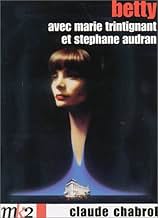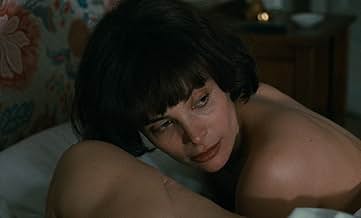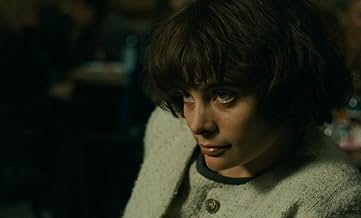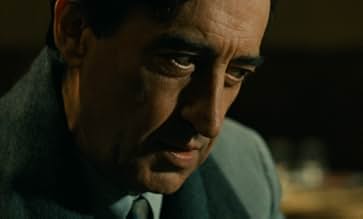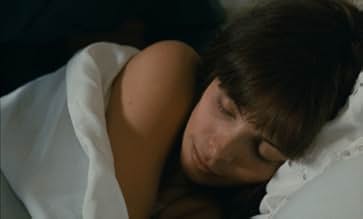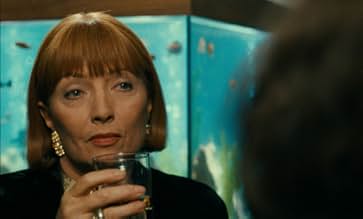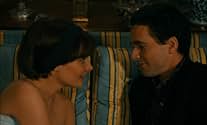Adicionar um enredo no seu idiomaA drunken self-destructive woman called Betty wanders through bars and meets a man that drives her to a restaurant outside Paris called Le Trou (The Hole). She meets the middle-aged alcoholi... Ler tudoA drunken self-destructive woman called Betty wanders through bars and meets a man that drives her to a restaurant outside Paris called Le Trou (The Hole). She meets the middle-aged alcoholic Laure from Lyon, who is the lover of the Le Trou's owner Mario. Laure decides to take ca... Ler tudoA drunken self-destructive woman called Betty wanders through bars and meets a man that drives her to a restaurant outside Paris called Le Trou (The Hole). She meets the middle-aged alcoholic Laure from Lyon, who is the lover of the Le Trou's owner Mario. Laure decides to take care of Betty and brings her to the room next-door in her hotel. Along the days, Betty tells... Ler tudo
- Direção
- Roteiristas
- Artistas
- Prêmios
- 1 vitória no total
Avaliações em destaque
So, after three failures on the trot, Chabrol turned to one of his favorite novelists, Georges Simenon hoping to find some help to boost his career again and he found it with the novel "Betty". He was so much taken with this novel that he decided to transfer it to the screen. It wasn't one of Simenon's most well-known novels but a commendable one all the same and it's easy to understand why Chabrol liked this novel so much. It assesses the portrait of an immoral woman who got a raw deal. She's like a driftwood in the throes of a river full of undertows and unbalanced by unfortunate events. A heartless mother who sent her to live with her aunt when she was young. The day she discovered her uncle having sex with a teenage girl, a loveless marriage in a bourgeois milieu whose members especially considered her as an object pregnancy so that the Etamble descendants could be assured, a scandal which obliged her to break with her upper-class family and her children. In Chabrol's work all these events are related as flashbacks and at the outset of the film, Betty is a complete drifter, wanders from café to café, is often on booze and fags (she spends a good half of the film with cigarettes and alcohol near her). In a rather sleazy bar, she's rescued by a rich widow, Laure (Stéphane Audran) who befriends with her. She also seems to be a woman with a heavy past behind her and searching for human warmth...
As Marie Trintignant once put it: "Chabrol likes these monstrous women who do terrible things with a total innocence". With this noteworthy opinion and the contents of the film, "Betty" is easy to locate in Chabrol's bushy filmography. One could regard it as the female cousin of "Violette Nozières" (1978), "une Affaire De Femmes" (1988) and "la Cérémonie" (1995). Without losing the thread of the plot, Chabrol unveils to the audience, key-elements in Betty's life which might have been watershed ones in the construction and the solidification of her numb and a little unfathomable persona. Chabrol was right not to give us available, direct solutions or weak possibilities to explain her actions and so his enigmatic heroine keeps all her mystery. To better emphasize her elusive character, the filmmaker bestowed his directing with deft, shrewd ideas. For instance, when Laure begins to speak about Mario her lover or herself, Betty doesn't appear to listen to her, she's completely immersed in her bitter memories and so, during Laure's words, the camera takes us in another time, another place like a dinner in her former bourgeois family. This kind of brainy idea tells a lot about the type of character that is Betty and also gives an inkling to the audience about her mind in disarray. And I particularly relish the very last shot which showcases her behind an aquarium whose water is unclear. It's self-explanatory...
"Betty" also provided to Chabrol another god-sent opportunity to deliver one more scathing attack on the upper-class milieu given that Betty's bourgeois family has a part of responsibility in her fall.
The two central performances command admiration and respect. Marie Trintignant and Stéphane Audran completely mesh together with easiness. For the latter, it would be the very last time she acted in a film made by her ex husband.
A compelling writing of the characters, a painstaking construction and the big efforts Chabrol put in this story of an ambiguous woman make "Betty" a real winner amid his uneven filmography. Unfortunately, his adaptations from Simenon didn't put the critics and the public on the same wavelength since the film had a fleeting life in the French theaters in spite of glowing reviews. The same mishap happened ten years ago with "les Fantômes Du Chapelier" (1982), another Simenon adaptation, inferior to "Betty". But never mind, in 1992 Chabrol found again his high artistic potential and the level will maintain itself with his two following works: the divine "l'Enfer" (1994) and "la Cérémonie" (1995).
Cinematography is part of the story. Like at Berri's "Tchao pantin" (1983), Bernard Zitzermann's work enhances the story at the right time, and then releases its grip on us. When it pours rain and Betty is carried like merchandise from one tramp to another, you feel wet and desolate. The song "Je voulais te dire que je t'attends" is very effective too, I felt bad just by comparing the moving lyrics with what we were seeing, the road to nowhere.
Simenon is a love/ hate affair, I find it hard to be objective with him. I can't speak about his novels, but I can't say I like watching his cinema adaptations, they make me feel bad about everything in life after having watched them. And yet, I though they well made, atmospheric, immersing, in a sort of "descent to hell" way. I mean, it's like reading Dostoievsky but less melodramatic, and with way more sex & the facade of love as subjects.
This is a film about women. Marie Trintignat of course IS this movie. Frail, elegant, beautiful, but enigmatic, always following her own ways, in her private world where no one reaches her, it's hard to love her if one sees her objectively, but is nevertheless an alluring character. Reading her bio on IMDb is heavily interesting, it's like Claude C understood her personality, almost her "destiny", encapsulated it and gave it to us on celluloid, thus, making it last sort of forever.
Laure, on the contrary, while no angel, maybe sees in Betty some sort of projection of herself, some "lost soul to be saved", or in any case, she mothers Betty, in a non dominating way, firm when she has to, almost too perfect to be real.
Mario and Guy Etamble are characters devoid of soul, will or personality. Guy of course is dominated by the family, even when they made her sign the legal contract, it's "them", not him. Even the sister in law is there :)! So when they have to decide "what to do with her", it's a family affair, in which Guy is only one of the voices. And of course there Madame Etamble seems to be the only dominating force. Again, women are the only source of plot in this story.
A very "French" film in the use of a convoluted plot, frequent flashbacks, "originary scenes" all the time (torrid sex scenes unintended to be seen, but of course finally obvious, unless you think there is always a motif for everything, so ... :)). Psychoanalysis is a commanding force, "manifestly" in the mouth of one of Betty's lovers, the intellectual, spectacled Freud follower, but "latently" in all of this oeuvre.
dbdumonteil's review has probably the best quote on this film, by Marie T., you better read it from his review proper.
Chabrol loves to hate the bourgeoisie, so it's no news they look silly and dumb here. The "bourgeois wealth, rigid roles, invisible servants, funless family in short". Chabrol would probably put the blame of most on them, but we don't have to. Nothing new by now, no big deal, Claude :).
This is a cautionary tale in many ways, but of course you'll have to watch this movie to find out why.
PS: The storyline review by "jhailey@hotmail.com" has spoilers, can't anybody do something about it?
It's a cautionary tale of the rigid social structure of a certain class of French family where children and wives are treated more like possessions than humans. Note how she isn't allowed to interact with her children..that is handled by the spotless Swiss nanny. Her husband buys her a mink coat, and rather than call it an expression of his love, he calls it an investment. No wonder she begins to drink! And yet she makes a lot of bad choices, which leads her astray from her family, which is maybe what she really wanted....
Marie T. was so sad..her eyes were so sad that I wasn't surprised to find that the actress herself had been killed. The pain in her eyes seemed almost unbearable.
I was disappointed in the end...it seemed to just drop off with not much explanation...I know European movies are much more likely to end this way, and yet I said "Huh?"...and yet I still enjoyed it as a portrait of an increasingly obsolete segment of French society.
Você sabia?
- CuriosidadesThe last film that director Claude Chabrol and his former spouse Stéphane Audran made together.
- ConexõesFeatured in Antenne 2 - Le journal de 20H: Episode dated 16 February 1992 (1992)
- Trilhas sonorasJe Voulais te Dire que je t'Attends
Lyrics by Michel Jonasz and Pierre Grosz
Music by Michel Jonasz
Performed by Michel Jonasz
Principais escolhas
- How long is Betty?Fornecido pela Alexa
Detalhes
Bilheteria
- Faturamento bruto nos EUA e Canadá
- US$ 58.099
- Fim de semana de estreia nos EUA e Canadá
- US$ 5.243
- 22 de ago. de 1993
- Faturamento bruto mundial
- US$ 58.099
- Tempo de duração
- 1 h 43 min(103 min)
- Mixagem de som
- Proporção
- 1.66 : 1

